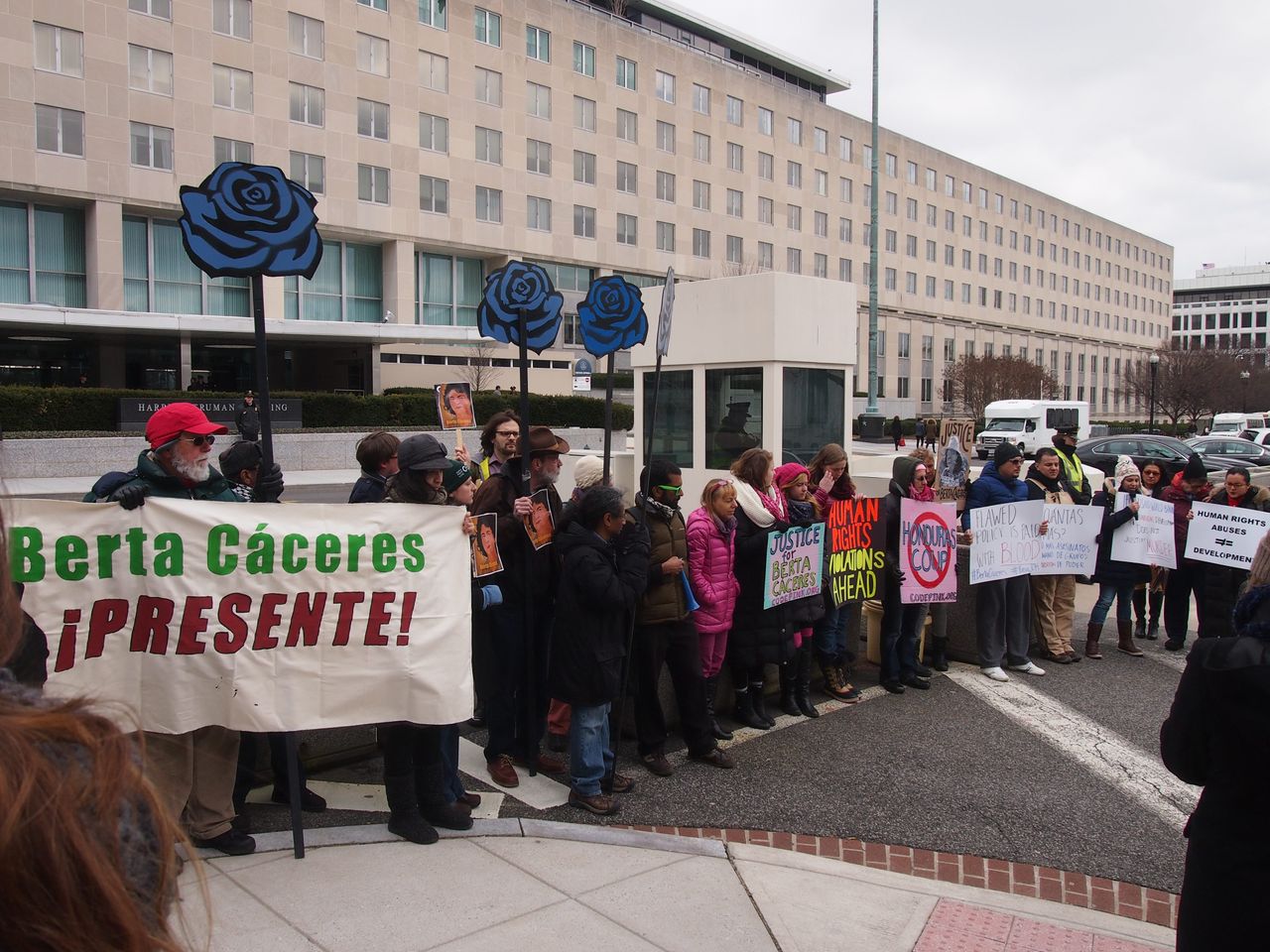
Upon the family request, the Supreme Court of Honduras adjourned the trial for the murder of Berta Cáceres, an advocate of Indian rights, for an indefinite period. The close relatives of the woman murdered in 2016 believe that the judges are biased and the state authorities have tried to cover up the truth.
The holy land of the Lenca people
Berta and the organisation she worked for – the Civic Council of Popular and Indigenous Organizations of Honduras (COPINH) – defended the rights of the Lenca people and opposed the hydroelectric power project Agua Zarca on the Gualcarque River. That project was approved by the government in 2013, but the Indian communities that live in these areas and consider them sacred were firmly against the process of building.
The Lenca people were also afraid of losing the access to food and water and that their lifestyle would change. For this reason, Berta Cáceres was organising numerous protests and informed the prosecutor’s office about violations of Indian rights. During one of the demonstrations, the army opened fire, killing one of the protestants and wounding three others. Nonetheless, the construction company Desarrollos Energéticos (DESA) continued its work.
On March 2, 2016, two men broke into the house of Berta Cáceres in the city of La Esperanza, shot her dead and severely wounded Gustav Castro, a Mexican ecologist.
– I was working on the presentation when I heard a loud bang. I thought something fell but when Berta shouted, “Who is there?!” I knew it was over … – recalls Gustavo Castra.
– When the gunman appeared, I covered my face. He was standing three meters away from me. He shot, I moved, and the bullet grazed my ear. He thought he killed me.
Problematic access to case files
Two years passed, the trial was about to begin. Eight suspects were charged with a crime. Paid killers and several people who planned the whole tragic action were detained after a few months. For some reason, however, the investigation has not developed properly.
– We were marginalized, and although the law in Honduras allows the family to access the victim’s case file, we were not allowed to do so – said Laura Zúñiga, one of Berta’s daughters, in an interview in the newspaper “El Diario“.
As there was no response to the request for a proper investigation, relatives and the COPINH created the International Expert Group to investigate the case. Finally, they published a report that contained text messages, photos and emails found in suspicious phones. It became clear that the murder had been planned in 2015 and that the construction company, security guards and state officials were behind it.
The impunity of judiciary system
“We expect people who were charged with a crime to be convicted and that justice will be done on people who were the originators of the murder,” said Olivia Zúñiga, the daughter of the murdered woman. She also criticised the court for “being unjust … and impunity.” For this reason, the victim’s family demands a change in the composition of the judges so that “the judges create the conditions for a just and honest trial.”
Sergio Rodríguez, Douglas Bustillo and David Castillo are among the defendants. Rodríguez was the community and environment manager, Bustillo – the head of security. Just before she was killed, Cáceres publicly admitted that they both threatened her with death. One of the initiators of the murder was Castillo, at that time the president of DESA company. Among those detained, there were three former military men trained in the United States years ago.
In July 2017, the construction company announced that “in a gesture of goodwill” it suspends the construction of the controversial dam. However, straight after arresting David Castillo in March this year, his employers tried to defend him, claiming that it was “under the influence of international pressure and various NGO campaigns aimed at discrediting the company.”
Environmental lawyers in the crosshairs
In 2017, 185 environmentalists were killed around the world, 60% of them came from Latin America. In comparison to other countries, during the last ten years the biggest number of people defending the environment lost their lives in Honduras. Berta Cáceres had received the Goldman Prize – the so-called ecological Nobel – three years before she was murdered. It was her death which received the most attention abroad.
Photo made by Slowking4 [GFDL 1.2], Wikimedia Commons























